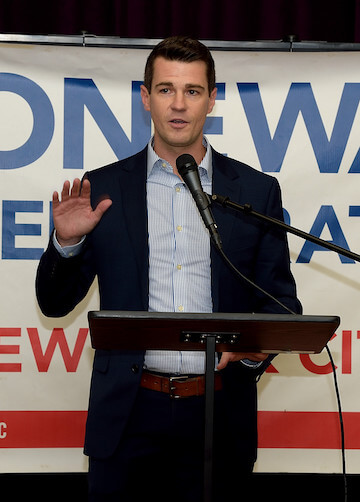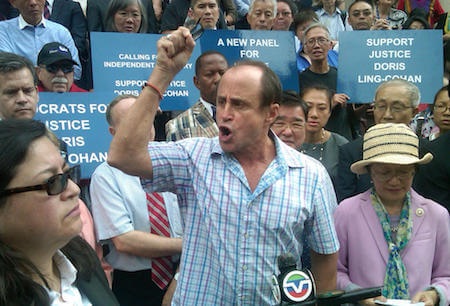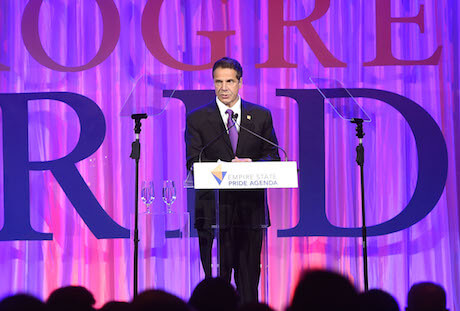Assemblymember Deborah Glick. | DEBORAHGLICK.COM
In 1990 Deborah Glick made history when she became the first out LGBT elected official in New York State. For the better part of that decade, she and later Tom Duane were the only members of our community at the table when legislators made decisions about our lives. We know from the victories we’ve achieved in the years since that people knowing about our lives – including in the role of colleague in the halls of government – has made a huge difference.
Viewing Glick’s career simply through a history-making lens, however, diminishes appreciation for the way in which her voice matters today. Few in Albany have provided as consistent and sturdy a voice on behalf of women’s health – particularly on matters of reproductive rights and agency. New York State legalized abortion three years before the 1973 Roe v. Wade ruling from the Supreme Court gave women nationwide the right to choose. Yet in the 43 years since Roe, the state has never stepped up to codify the full rights guaranteed under the US Constitution, which go beyond the statutory rights afforded by the 1970 state law. Republicans in Albany have resisted the idea, while Republicans in Washington would love to curb or overturn Roe, which is why Glick fights to ensure that the current federal protections remain in place in New York regardless of what happens in this year’s presidential election or in any future Supreme Court consideration of the issue.
Glick also worked to ensure that employee prescription drug plans in New York provide contraception coverage, something that is especially important in light of the US Supreme Court’s startling 2014 decision in the Hobby Lobby case, where an employer won exemption from the contraception coverage requirements of President Barack Obama’s Affordable Care Act based on the company’s “religious beliefs.”
LETTER FROM THE EDITOR
As chair of the Assembly Higher Education Committee, Glick is also a key player in the fight to ensure stronger support for the state’s public college and university systems. At a time of great public concern over lagging wage levels for middle and working class New Yorkers and Americans, Glick rightly points to the proud role CUNY and SUNY have played in encouraging social and economic mobility in our city and state. And on that issue, she has been unafraid to challenge Governor Andrew Cuomo, something not every Democratic elected official is willing to do.
One of the knocks against Glick is her longstanding relationship with disgraced former Assembly Speaker Sheldon Silver. For much of Silver’s tenure in that post, he enabled progressive Democrats to advance important issues, marriage equality among them, where the Assembly was four years ahead of the State Senate. It’s regrettable that Glick and her Democratic colleagues did not reassess their support for Silver’s speakership after learning in 2012 of secret settlements he authorized for women who lodged sexual harassment claims against Brooklyn Assemblymember Vito Lopez. Still, no one except for Silver bears responsibility for the public corruption that three years later led to his own undoing; in fact, a portion of his malfeasance was do to the opacity of a budgeting process he controlled that concealed his unseemly appropriations.
Glick’s Democratic primary challenger next week, longtime LGBT activist Jim Fouratt, has faulted her for what he says is her lack of leadership on critical issues facing the West Village community, including the 2010 closing of St. Vincent’s Hospital and the siting of a high pressure fracked gas pipeline on the Far West Side. Both are issues that Fouratt engaged on extensively as an activist, but in making his case against Glick, he has failed to specify where she had authority and influence to have changed the outcome but failed to do so. The St. Vincent’s closing, in particular, has been a lingering resentment for many in Lower Manhattan, but for years the discussion has involved an odd discontent with what has been happening with hospitals citywide and with overall changes in healthcare delivery and economics.
As an outsider challenger, Fouratt correctly points out that he is not positioned to win the sort of establishment endorsements that Glick enjoys. There’s no shame in that for him. What he should be more concerned about, however, is the lack of evident support from those activists with whom he’s worked shoulder to shoulder on so many good causes over the years.
It’s popular today to say we need to move beyond “identity politics,” but that critique has always grated on me. As a community, we’ve needed to embrace the truth that the personal is political – if for no other reason than that the larger society was so willing to disenfranchise us for who we are. More to the point, in her political work, Glick has always recognized that her identity as a woman and as a lesbian implicates her in a broader progressive tradition that aims to improve the lives of other disenfranchised segments of our society. She has stayed true to that tradition and deserves support on September 13.






































